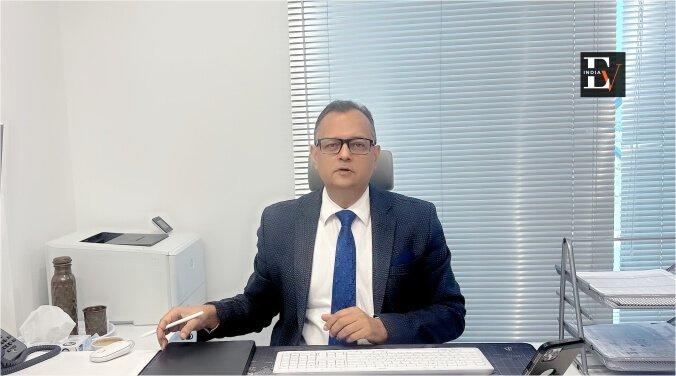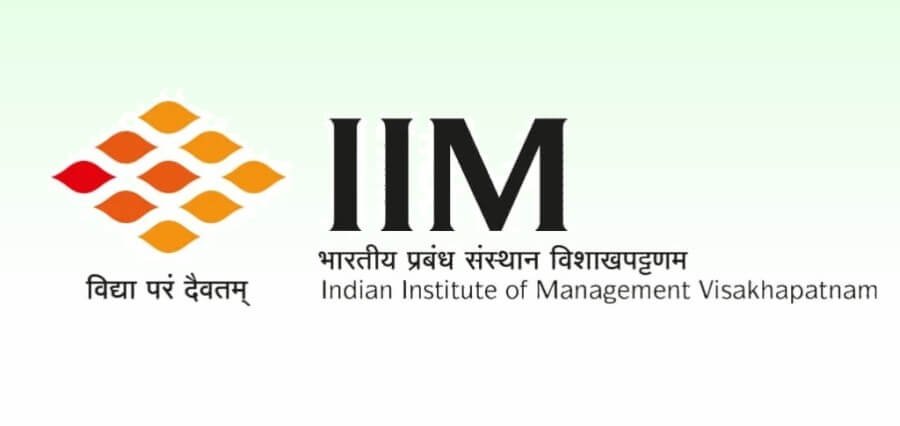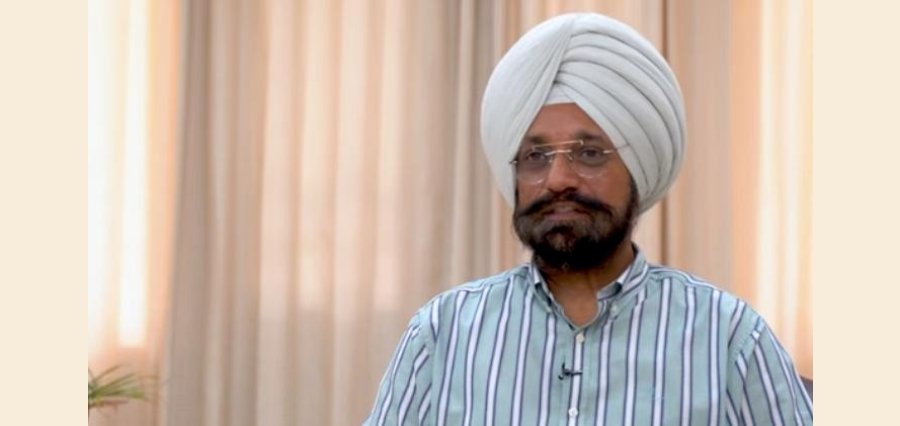The robust automobile industry demands strong leadership characterized by an agile pace of innovation and a compelling strategic vision. Leaders in this sector often leverage their unique journeys and challenges to drive forward-thinking solutions and inspire their teams. Their ability to integrate personal insights with professional expertise becomes the foundation of success in navigating the advancing landscape of automotive advancements.
Sanjay Nigam, the Chief Executive Officer of Petromin Corporation – India & SE Asia Jeddah. KSA., embodies this principle. His transition from aspiring army officer to influential business leader highlights a deep-seated commitment to driving impactful change. Through his unique journey, Sanjay assimilates personal values with professional strategies, setting a benchmark for effective leadership in the competitive world of the automotive industry.
Leadership across Roles
For Sanjay, his father is an inspirational figure. His father was a revered Director General of Police who led 40,000 officers with discipline and integrity. His father’s dedication to protecting and uplifting his team while balancing firmness with kindness left an indelible mark on Sanjay. Witnessing his father’s ability to positively affect countless lives, Sanjay was deeply moved and aspired to emulate this profound impact. This emotional connection to his father’s leadership is a driving force in Sanjay’s own leadership journey.
Initially aiming for a career in the military, Sanjay excelled at the army services selection board for permanent commission. However, his path diverted towards the business world. Today, as the CEO of Petromin Corporation in South Asia, he channels his father’s legacy into leadership, demonstrating that impactful contributions can be made across various roles.
Sanjay’s approach in the automotive sector reflects his belief in leading by example. He emphasizes that success comes from embodying the values of discipline, integrity, and hard work, not merely advising others. By creating an active and culturally sustainable ecosystem at Petromin, he continues to drive robust growth and make a significant difference in people’s lives, both financially and socially.
Turning Business into a Platform for Positive Change
Sanjay is driven by a mission to positively impact the lives of those in need, both financially and socially. His approach to business is centred on creating enterprises that serve as platforms for the upliftment of everyone who engages with them.
Sanjay believes that business organizations are more than just profit-driven entities—they are communities that unite people under a common goal. “The way I see it, business organizations seek to bring people under a common umbrella, make them work together in a certain direction and create value and assets not only for the organization but also for the people,” he says.
With this perspective, Sanjay envisions building an ecosystem of businesses that brings together uniquely focused organizations into a self-supporting environment. This ecosystem is designed to enable collaboration and mutual support that wouldn’t be possible if these businesses existed independently.
His idea is to ensure that one business supports another, creating a network that serves external clients while also fostering internal partnerships.
This ecosystem provides opportunities for economies of scale, strengthens smaller business units and solidifies their collective impact.
The Power of Perspective
Sanjay began his journey with the challenge of finding like-minded individuals. Initially, he believed that growth would be easier with such people, but over time, he realized that this approach limits potential. He understood that true growth lies in bringing together people with diverse mindsets who can align on a common goal.
He reflects, “One should rather look for people with different mindsets who can come on the same platform and work towards a common goal.” This realization shifted his perspective, opening up unlimited growth opportunities and he never looked back.
To overcome these challenges, Sanjay encourages his team to think outside the box and focus on ideas with the highest chance of success. He recognizes that while great strategies and ideas are the foundation of any business, their successful execution requires unwavering tenacity.
This drives him out of boardrooms and air-conditioned offices into the field, where he spends significant time engaging with customers, operating staff and field managers. By staying closely connected to the front lines, Sanjay stays ahead of changing market demands. His hands-on approach ensures that he has a clear view of market realities, allowing him to act decisively and proactively as a leader.
Combining Vision, Passion and Flexibility for Success
Sanjay emphasizes four leadership mantras that he has consistently practised as a CEO over the past two decades. Firstly, he stresses the importance of being absolutely clear about the end goal. As a leader, he believes that clarity about what you aim to achieve is essential.
Secondly, he highlights the need to communicate this end goal with a clear timeline, not just to middle-level managers but also to the last person on the ground who will ultimately bring the vision to life.
Thirdly, Sanjay is relentless in his pursuit of execution excellence. He firmly believes that since the idea originates from the leader, no one else can be more passionate about it. He ensures that this passion for execution permeates every level of the organization, from management to the frontline.
Lastly, he emphasizes the importance of flexibility in leadership. Sanjay understands that things may not always go as planned, and as a leader, one must be agile and adaptable, ready to change strategies when necessary. This combination of clarity, communication, relentless execution, and flexibility forms the cornerstone of his leadership approach.
The Technological Edge
Sanjay firmly believes that technology is essential for gaining a competitive advantage. He illustrates this by asking, “Imagine if one must go from Chennai to Delhi and choose to walk. Compare that time taken to reach Delhi with another person who takes a flight!” The comparison highlights the efficiency and effectiveness that technology brings, making it indispensable in today’s competitive landscape.
In his business, Sanjay takes this principle to heart by developing unique systems in-house rather than renting software from the market. His vision is to create a unique, end-to-end online ecosystem that connects retail customers, operating systems, suppliers, and manufacturers. This seamless integration is something that others in the industry do not offer.
Moreover, Sanjay embraces Artificial Intelligence to track customer behaviour and operational dynamics. By doing so, he aims to enhance the overall experience without the interference of individual bias. He understands the importance of staying ahead in a continually progressing technological landscape and stresses the need to continuously keep pace with developments.
Sanjay acknowledges that competition can quickly catch up with any impact made today, which is why he prioritizes ongoing technological improvements. For him, the key to maintaining an edge lies in consistently reaching the next milestone before the competition does.
The Art of Risk and Reward
In every company Sanjay has worked for, he encountered the need for risky, groundbreaking ideas that break past trends. He recalls an experience as a regional head at a large automobile company where they launched a new car with a highly reputed megastar as the national brand ambassador.
Despite the star’s fame, the regional audience did not connect, and sales stagnated. Sensing the market, Sanjay made a bold decision to launch a regional brand ambassador who charged minimally. The emotional connection this new ambassador created in the region generated positive market sentiment and led to a significant surge in car sales. Reflecting on this, Sanjay says, “I believe we should always have the guts to take a stand and push back if required.”
Similarly, as the National Head of Sales for an American company with a low market share and demotivated dealers, Sanjay faced another challenging situation. The company launched a new car model that was extremely expensive, creating a do-or-die scenario.
Sanjay travelled across the country, meeting with dealers and collaborating on a plan that involved risk-sharing and increasing working capital, with both sides contributing to the substantial marketing costs. This joint effort resulted in the company achieving its largest market share in history within just a few months. Sanjay’s experiences underscore his belief in taking calculated risks and having the courage to stand by his decisions when the situation demands it.
Eyes on the Prize
A leader must be smart and adaptable to succeed, especially in a market that changes daily. Whether it’s technology, the economy, politics, people, or customer preferences, a good leader stays vigilant.
In his current assignment, Sanjay is tasked with setting up all businesses for the parent company in the world’s fourth-largest automobile market—India and South Asia. These businesses operate differently in these regions, requiring him to quickly adapt to the local preferences, culture, pricing, and competition. “It is like tennis; while playing it, you cannot take your eye off the ball even for a minute,” Sanjay explains.
Despite the challenges, he has successfully adapted, gaining significant traction from people, customers, large partners, business houses, and the government. He sees this as just the beginning of building a self-sustaining ecosystem that will help the business grow faster and stronger, solidifying its presence in the new market.
Cultivating Confidence and Creativity
Sanjay consistently holds cross-level and cross-functional team meetings where he sets the agenda and encourages open dialogue. He values listening to his teams with an open mind, understanding that while they may not always be correct, they often provide ‘nuggets of gold wisdom’ that prove invaluable in strategizing organizational changes. Motivating young talent is also a priority, with rewards given for innovative ideas that lead to successful implementations.
At Al Dabbagh Group, this culture is embodied in the concept of ‘omnipreneurship,’ which encourages everyone to contribute groundbreaking ideas to improve business operations. Sanjay believes that fostering this environment builds confidence in his team members, guiding them to eventually become great leaders themselves.
Merging Business Innovation with Personal Spirituality
On the professional front, Sanjay aims to elevate Petromin businesses to new heights by developing an ecosystem tailored to the new local market needs. This strategy ensures robust growth that improves people’s lives both financially and socially, ultimately attracting more individuals and creating significant value for all stakeholders.
On a personal level, Sanjay feels increasingly spiritual, finding deep gratitude for the blessings and successes he has received through God’s grace and good fortune. He holds a strong belief in Guru Dev, emphasizing the importance of humility and grace in life. Sanjay is committed to contributing his best efforts for the betterment of society, reflecting his belief in giving back and living with purpose.
Integrating Integrity
Sanjay advises young leaders to lead by example. He emphasizes that no amount of advice or guidance will be effective if it is not backed by personal actions. “If you talk of discipline, integrity, execution, hard work, it should start from you,” he asserts. He stresses that cultural change can only be achieved by exemplifying the values you advocate.
People believe what they see, not just what they hear or are told to do. Sanjay believes that long-term financial success is achievable only when people’s goals align with organizational goals and a culturally sustainable change is implemented. “There is no shortcut to success,” he concludes, highlighting the importance of personal integrity and commitment in leadership.
The Making of a Leader
Very early in his career, Sanjay started working in a government company, a Public Sector Undertaking (PSU). At that time, PSUs were regarded as highly prestigious, offering significant power to young executives due to their large-scale operations. As a young man in his early 20s, Sanjay found himself attracted to this power.
However, he quickly faced major challenges. Internally, militant trade unions aggressively pursued their objectives, while externally, large cartels of customers wielded political influence to get their way. It became a baptism by fire for Sanjay, but he stood firm in his integrity and self-discipline.
Over time, union leaders and large dealers began to respect him, recognizing his discipline and integrity. Reflecting on this experience, Sanjay believes, “No organisation by itself can make an individual powerful. It is with your leadership skills, you can command respect.” His leadership style, not his position, becomes the key to inspiring others.
Rising through the Ranks
Sanjay considers himself fortunate to have received leadership recognition early in his career. He reflects that leadership has always come naturally to him, evident from his days as a class representative during his engineering and management studies. His leadership abilities were further validated when he qualified for the Services Selection Board for a permanent commission, a rigorous test of leadership that saw him emerge among the top 72 candidates in his batch.
Throughout his career as a Business Leader in prominent automobile companies like Maruti, Ford and Toyota, Sanjay consistently received rewards for achieving high targets. His track record of excellence and leadership did not go unnoticed, as he was also selected for the prestigious Chevening Scholarship by the British government to study at Manchester Business School.





